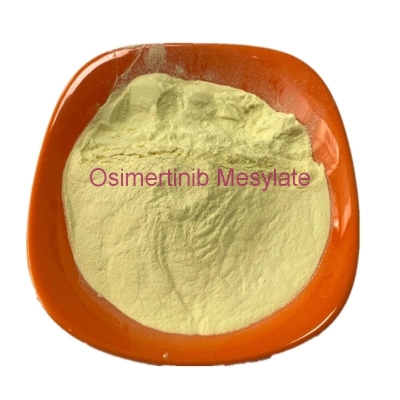-
Categories
-
Pharmaceutical Intermediates
-
Active Pharmaceutical Ingredients
-
Food Additives
- Industrial Coatings
- Agrochemicals
- Dyes and Pigments
- Surfactant
- Flavors and Fragrances
- Chemical Reagents
- Catalyst and Auxiliary
- Natural Products
- Inorganic Chemistry
-
Organic Chemistry
-
Biochemical Engineering
- Analytical Chemistry
- Cosmetic Ingredient
-
Pharmaceutical Intermediates
Promotion
ECHEMI Mall
Wholesale
Weekly Price
Exhibition
News
-
Trade Service
According to statistics, there are about 600,000 colorectal cancer (CRC) deaths worldwide each year, the third highest of all cancers.
the number of deaths per year has been decreasing in recent decades as a result of improvements in anti-tumor therapies.
previous studies have shown that changes in genetics and presomic genetics are closely related to the deterioration of CRC.
, a better understanding of the molecular mechanisms involved in the development of CRC will help to find new treatments.
non-coding RNA (lncRNA) is an RNA molecule that does not have the ability to encode proteins.
of lncRNA has been shown to be associated with biological functions, including cell proliferation, migration, and stem cell characteristics, and is an important factor in the development of various human cancers.
study aims to shed light on the function of lncRNA LINC01106 in the development of CRC and its potential molecular mechanisms.
high expression levels of LINC01106 and poor prognostication in CRC patients found that LINC01106 had higher levels of expression in colon cancer (COAD) tissue than normal colon tissue through an online database, GEPIA analysis.
, the high expression level of LINC01106 was negatively related to the overall survival rate of COAD patients.
, based on UCSC database analysis, the low expression level of LINC01106 in normal colon tissue was also identified.
Gli1/2/4 is the three downstream factors of the CRC function mediated by LINC01106, which were found by qRT-PCR experiments, and LINC01106 was highly expressed in CRC tissue compared to adjacent normal tissues.
, the researchers tested the expression of LINC01106 at the cellular level and confirmed that the expression level of LINC01106 in CRC cells was higher than in normal cells.
further studies have shown that LINC01106 is mainly distributed in cytocytes and can induce the proliferation, migration and stemability of CRC cells.
study of the schematic mechanism of LINC01106 to promote the development of CRC has shown that LINC01106 in cytotones can regulate the expression of Gli4 in CRC cells by acting as a molecular sponge of miR-449b-5p.
addition, LINC01106 of cell nucleus distribution can activate transcription of Gli1 and Gli2 by collecting FUS to the Gli1 and Gli2 startup subregions.
further mechanism study also revealed that Gli2 is the transcriptional activation factor of LINC01106.
in general, the results of the study revealed that Gli2-induced increases in LINC01106 expressions can exacerbate the development of CRC by increasing the expression levels of Gli1, Gli2 and Gli4.
.







